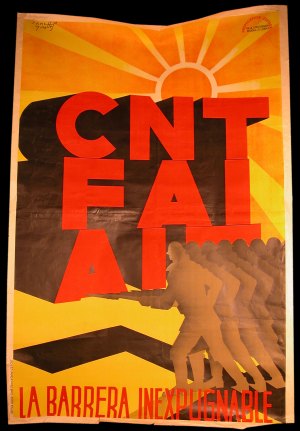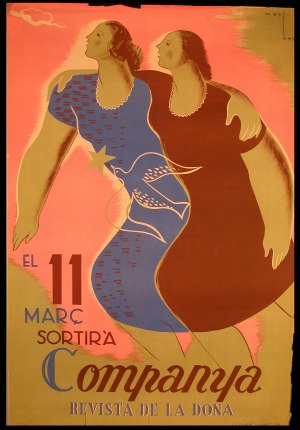

Written: 5 April 1931.
First Published: Ten Commandments of the Spanish Communist, The Militant, Vol. IV No. 11, 1 June 1931, p. 1.
Source: Class Struggle, Official Organ Of The Communist League Of Struggle (Adhering to the International Left Opposition), Vol. 1 No. 2, June 1931.
Online Version: Vera Buch & Albert Weisbord Internet Archive.
Transcribed/HTML Markup: Albert Weisbord Internet Archive/David Walters.
Proofread: Einde O’Callaghan (January 2013).
1. The monarchy has lost the power, but hopes to win it back. The possessing classes are still firm in the saddle. The republican and socialist bloc has based itself upon the republican upheaval, in order to keep the masses from the road of the socialist revolution. No faith in speeches! Let us have action! In the first place: the arrest of the most prominent leaders and supporters of the old regime! Confiscation of the property of the royal family and its most compromised henchmen! The arming of the workers!
2. The government, with the support of the republicans and socialists, will try by all possible means to enlarge its base towards the right, in the direction of the big bourgeoisie and will try some capitulations in order to neutralize the church. The government is an exploiters’ government created to protect the exploiters against the exploited. The proletariat is in irreconcilable opposition to the government of “socialist” republican agents of the bourgeoisie.
3. The participation in power of the socialists means that violent clashes will increase between the workers and the socialist leaders. This fact opens up great possibilities for the revolutionary policy of the united front. Every strike, every demonstration, every approach of the workers towards the soldiers, every step of the masses towards the real democratization of the country from now on will clash with the resistance of the socialist leaders as men of “law and order.” So it is all the more important for the Communist workers to take part in the united front with the socialist, syndicalist, and non-partisan workers and to draw the latter under their own leadership.
4. The Communist workers today comprise a small minority in the country. They cannot in an immediate way aspire to power. They cannot at this very moment set themselves the practical task of the violent overthrow of the republican-socialist government. Any attempt in this direction would be a catastrophic adventure. The masses of workers, soldiers and peasants must go through the stage of socialist republic illusions, in order to get rid of these illusions all the more radically and definitely. Not to be fooled by phrases, to look facts straight in the face, obstinately to prepare for the second revolution, the proletarian revolution.
5. The task of the Communists in the present period is to win the majority of the workers, of the soldiers, of the peasants. How can this be done? By carrying on agitation, by training cadres, by “patiently explaining” (Lenin), by organizing. All this on the basis of the masses’ experience and the active participation of the Communists in this experience: a broad and bold united front policy.
6. The Communists do not take any step, with the republican-socialist bloc or any part of it, which either directly or indirectly could restrict or weaken the Communist freedom of criticism and agitation. Everywhere, the Communists will tirelessly explain to the masses of people that they shall be in the front ranks in the struggle against all kinds of monarchical counter-revolution, but that no alliance is necessary for such a struggle with the republicans and socialists, whose policy will inevitably be founded upon concession to reaction and will tend to cover up its intrigues.
7. The Communists put forward the most radical democratic slogans; complete freedom for proletarian organizations, freedom of local self-government, eligibility of the people to all posts, admission to suffrage of men and women from the age of 18, etc.; creation of a workers’ militia and later of a peasant militia. Confiscation of all property of the Royal family and church property for the benefit of the people, in the first place for the unemployed, for poor peasants, and for improving the conditions of the soldiers. Complete separation of church and state.
All civic rights and political advantages to be granted to soldiers. Eligibility to be officers in the army. The soldier is not an executioner of the people, nor an armed mercenary of the rich, nor a proletarian, but a revolutionary citizen, a blood brother of the worker and peasant. (* See translator’s note at end.)
8. The central slogan of the proletariat is that of workers’ soviets. This slogan must be tirelessly and constantly put forward and popularized and at the first opportunity we must move to its realization. Workers’ soviets do not mean the immediate struggle for power. That is certainly the aim but it is one which the masses can attain only by the road of their own experience and with the help of the Communists work of enlightenment. Workers’ soviets today mean the bringing together of the scattered forces of the proletariat, the struggle for the unity of the working class, for its autonomy. The workers’ soviets take up questions of strike funds, of feeding the unemployed, of connections with the soldiers, in order to head off bloody encounters among them, of connections between city and country, in order to insure the alliance of the workers with the poor peasants. The workers’ soviets include representatives of the army corps. It is in this way and only in this way that the soviet will become the organ of proletarian insurrection and later the organ of power.
9. The Communists must immediately work out a revolutionary agrarian program. The basis of this must be the confiscation of the land of the rich and privileged classes, of the exploiters beginning with the royal family and the church, for the benefit of the poor peasants and the soldiers. This program must be concretely adapted to different parts of the country. In every province, each with its own economic and historical peculiarities, there must be created a commission to work out a concrete agrarian program, in close cooperation with the revolutionary peasants of the region. We must know how to hear the peasants’ voice, in order to formulate it in a clear, accurate manner.
10. The so-called left socialists (among whom there are some good workers) will invite the Communists to make a bloc and even to unite their organizations. To this the Communists will answer: “We are ready, in the interests of the working class, and for the solution of concrete determined tasks, to work hand in hand with any group and any proletarian organization. To this very end we propose to create soviets. In these soviets, workers’ representatives, belonging to different parties, will discuss all present day questions and all immediate tasks. The workers’ soviet is the most natural, the most open, the most honest and healthy form of this alliance, considering the common work. In the worker soviet, we, Communists, will propose our slogans and our solutions of problems, and we will try to convince the workers of the correctness of our course. Each group within the workers’ soviet must enjoy complete freedom of criticism. In the struggle for the practical tasks proposed by the soviet, we, Communists, will always be in the first rank. That is the form of collaboration which the Communists fraternally propose to the socialist syndicalist, and non-partisan workers.
By insuring unity in their own ranks, the Communists will win the confidence of the proletariat and of the great majority of the poor peasants; they will take the power into their armed hands and will open up the era of the socialist revolution.
Kadikoy
April 5, 1931
* This explanation is especially necessary because of the great hatred of the military in Spain, who appear everywhere as a great burden upon the people.
  Return to Trotsky’s
|

Last updated on: 4.1.2013